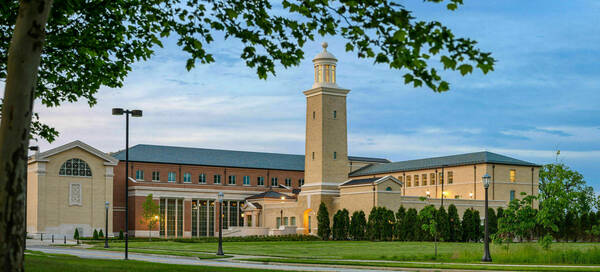
Pope Francis’ 2015 encyclical, Laudato si’, is a direct call to address the socioeconomic, urban, and environmental woes of our common home. It is a radical and urgent message to generate profound changes in both urban and rural lifestyles and modes of production and consumption. It calls for environmental stewardship through peaceful means. It demands an unprecedented discussion of avenues through which we may save our planet and ways in which we can ensure an acceptable quality of life for all, not just the rich and powerful nations that dominate global political and economic affairs.

The School of Architecture's Initiative for Adaptive Buildings and Cities is our answer to this call. During the spring 2024 semester, we are presenting five Faculty Roundtable discussions, led by Research Associate Carl Elefante.
Although the focus is on engaging School of Architecture faculty, the Roundtable sessions are open to all. Participation by students, faculty from other programs, and other interested parties is not only welcomed but encouraged.
All sessions are recorded and can be viewed here.
- The first session, Interlocking Imperatives, introduces the framework for addressing the challenges of 21st century habitation in the context of the climate, justice, and urban imperatives. (This session was held on January 24.)
- The second session, Reforming Cities and Towns, and the third session, Beyond Modern Buildings, investigate two scales of intervention, urban and building, to overcome the barriers to progress embedded in modern-era biases. (The second session was held on Februrary 14, and the third session is scheduled for March 5.)
- The fourth session, Prioritizing Regional Design, and fifth session, Prioritizing Re-Use, focus on two specific building sector issues critical in addressing the real-world challenges our profession will face during the careers of our students. (The fourth session is scheduled for March 27, and the fifth session is scheduled for April 2.)
Session 5
In highly developed countries in the Global North, led by the US, the post-WWII building boom was staggering. Not only has population continued to grow at breakneck speed, but per capita development has also skyrocketed. Further, there is a deeply held modern-era misnomer that the solution to almost every ill is to replace “bad” traditional buildings with “good” modern ones.
Re-using and refurbishing existing buildings is the most direct approach to reducing environmental damage and avoiding greenhouse gas emissions, reinforcing social and cultural connection, and addressing the host of socio economic challenges in modern-era cities.
Pre-Recorded Guest Presentations
- Adapting Buildings – Jean Carroon, Principal, Goody Clancy – The Global North’s unseen challenge: new life from existing buildings.
- Traditional Buildings – Robyn Pender, Senior Analyst, Retired, Historic England – Traditional buildings and materials: time-tested performance.
Sponsored by the School of Architecture
Originally published at energy.nd.edu.